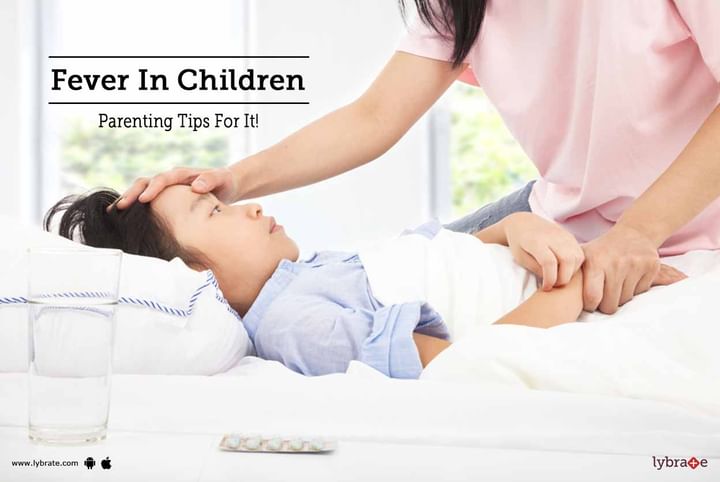Fever In Children - Parenting Tips For It!
Fever in children is a very common phenomenon, but still parents absolutely dread it. It can completely break your heart to suddenly see a happy, healthy child not getting up from the bed. Your first instinct when that thermometer crosses that dreaded 100 degrees F is to rush to the doctor for an immediate cure. That is probably the best remedy as a doctor can often catch additional signs of any disease that you may miss out on. Beyond that, here is how you can understand about fever in children better and how you can help. Technically, your child has fever when the body temperature crosses 100.4 degrees F.
Some children manage to stay active even then, but slowly get bogged down with muscle pain or other accompanying symptoms like cold, diarrhea, vomiting etc.
- Causes: Fever is normally caused by the body's reaction to fighting an infection. (That is why most doctors say it's a sign of a robust immune system). When the body's natural defense system is stimulated, the core inner temperature rises, thereby making it harder for the bacteria and viruses that caused the infection to survive. Most fever subside on their own but that's a tough thing to accept as a parent who only wants to see their child up and running as soon as possible.
- What you can do: Keep an eye on that temperature obviously. You need to find a doctor the moment the fever crosses the threshold temperature (101+ for less than three months olds, 102+ for 3-6 month olds and over 102 for older children). You should also consult a doctor if there are accompanying symptoms or if you've given a dose of Paracetamol but the fever shows no sign of subsiding. It might happen at midnight and beyond, when no regular pediatrician is unavailable. So it is best to find out which hospital has an emergency center capable of handling such eventualities near your home.
- Fever medications: It is super important for parents to know that fever medications must be given in the correct dose at the right times based on a child's weight, age, and overall health. An overdose can lead you straight to the emergency room. Don't mix a cold/cough medication that also has a fever medication in it.
- Home remedies: Encourage your child to drink as much fluids as possible to prevent dehydration. Some doctors advise complete body sponging to bring down the temperature and this can be done as long as it doesn't cool the body too suddenly (there are contradictory notes on this practice, so do consult you doctor before your do this).
As parent, it is important you equip yourself with the right knowledge before you provide treatment to your child.



+1.svg)
